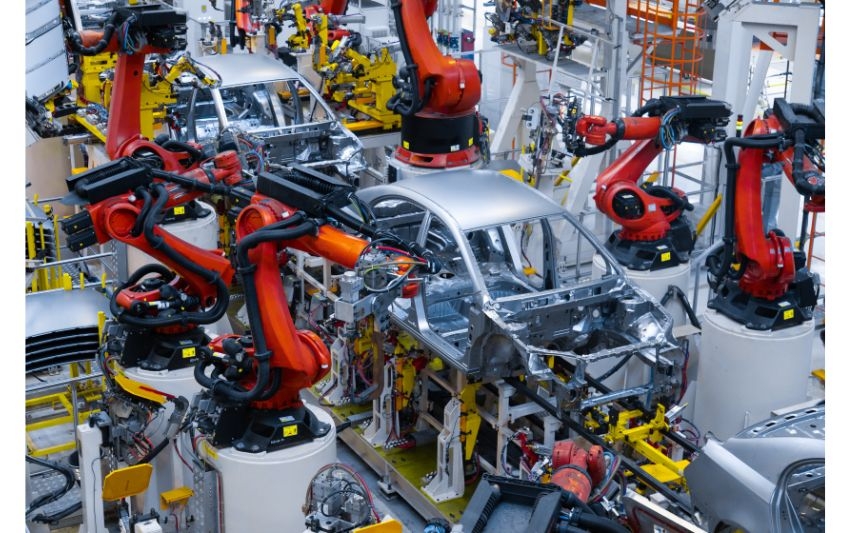The UK car industry has long been a significant contributor to the country’s economy, providing jobs and generating revenue. In this article, We will delve into the current state of the UK car industry, discuss the trends and innovations shaping its future, explore the impact of Brexit, examine the rise of electric and autonomous vehicles, identify key players in the industry, analyze the challenges and opportunities it faces, explore car buying and ownership trends, and provide a future outlook. So, fasten your seatbelts as we embark on a journey through the latest updates on the UK car industry.
Current state of the UK car industry
The UK car industry has faced its fair share of challenges in recent years. Despite these hurdles, it has managed to stay on track and adapt to changing market conditions. In 2020, the COVID-19 pandemic hit the industry hard, causing a significant decline in car sales and production. However, as the world gradually recovers, the UK car industry is showing signs of bouncing back. The demand for new cars is slowly increasing, and manufacturers are ramping up production to meet this resurgence. Additionally, the industry has been quick to adopt digital technologies, allowing customers to explore and purchase vehicles online. This shift towards digitalization has not only enhanced the customer experience but has also opened up new avenues for growth.
Trends and innovations in the UK car industry
Innovation has always been at the forefront of the UK car industry. To stay competitive in the global market, manufacturers are constantly pushing the boundaries of technology and design. One of the key trends in recent years is the rise of electric vehicles (EVs). With the government’s commitment to reducing carbon emissions, EVs have gained significant traction. Companies like Tesla and Nissan have made significant investments in the UK, setting up manufacturing plants for electric vehicles. Another area of innovation is autonomous vehicles. Although still in the early stages of development, autonomous technology has the potential to revolutionize the way we commute. UK-based companies, such as Wayve and Oxbotica, are at the forefront of this technological advancement.
Impact of Brexit on the UK car industry
Brexit has undoubtedly had a profound impact on the UK car industry. With the UK formally leaving the European Union, the industry faced uncertainty and significant challenges. One of the major concerns was the disruption to the supply chain. Many car manufacturers rely on parts imported from the EU, and any delays or additional costs could have a detrimental effect on production. To mitigate this risk, manufacturers have been actively seeking alternative suppliers and working towards localizing their supply chains. Additionally, Brexit has raised concerns about the ease of exporting and importing vehicles between the UK and the EU. However, the UK government has been working on trade agreements to ensure a smooth transition and minimize any adverse effects on the industry.
Electric and autonomous vehicles in the UK
The UK car industry is witnessing a rapid shift towards electric and autonomous vehicles. With increasing environmental concerns and the government’s commitment to reducing carbon emissions, electric vehicles have become a popular choice for consumers. The UK government has implemented various incentives, such as grants and tax breaks, to encourage the adoption of electric vehicles. This has led to a surge in the number of EVs on UK roads. Additionally, the development of autonomous technology is gaining momentum in the UK. Companies like Waymo and Uber are testing autonomous vehicles on UK roads, and the government has been actively supporting these trials. The rise of electric and autonomous vehicles not only presents new opportunities for the industry but also poses challenges in terms of infrastructure and regulations.
Key players in the UK car industry
The UK car industry is home to several key players who have played a pivotal role in its growth and success. Companies like Jaguar Land Rover, Aston Martin, and Rolls-Royce are synonymous with British luxury and craftsmanship. These companies have a rich heritage and continue to produce iconic vehicles that are revered worldwide. In the electric vehicle space, Tesla has established a significant presence in the UK, with its Model 3 becoming one of the best-selling electric cars in the country. Furthermore, traditional automakers like Ford and Vauxhall have also made strides in the EV market, offering a range of electric models to cater to the growing demand. The UK car industry is a melting pot of innovation and heritage, with each player contributing to its vibrant ecosystem.
Challenges and opportunities for the UK car industry
While the UK car industry has witnessed remarkable growth, it also faces several challenges and opportunities. One of the significant challenges is the transition to electric vehicles and the associated infrastructure requirements. The UK needs to invest in charging infrastructure, both in urban areas and along major highways, to support the increasing number of electric vehicles on the road. Additionally, the industry needs to address concerns regarding range anxiety and battery technology to instill confidence in consumers. Furthermore, the rise of autonomous vehicles brings both opportunities and challenges. The UK has the potential to become a leader in autonomous technology, attracting investment and creating jobs. However, it also needs to navigate the complexities of regulations and ensure public safety. By addressing these challenges head-on, the UK car industry can seize the opportunities that lie ahead.
Car buying and ownership trends in the UK
The way consumers buy and own cars is evolving rapidly in the UK. Traditionally, car ownership was the norm, with individuals purchasing vehicles outright or through financing options. However, there has been a shift towards alternative ownership models, such as car leasing and car-sharing services. These models offer flexibility and affordability, allowing consumers to access vehicles without the long-term commitment of ownership. Furthermore, the rise of online platforms has transformed the car-buying experience. Consumers can now research, compare, and even purchase vehicles online, saving time and simplifying the process. The industry has also witnessed a surge in the demand for used cars, driven by factors like affordability and the availability of certified pre-owned programs. As the industry continues to evolve, it is crucial for manufacturers and dealerships to adapt to these changing consumer preferences.
Future outlook for the UK car industry
The future of the UK car industry is both exciting and challenging. With the government’s commitment to electric vehicles and autonomous technology, the industry is poised for further growth and innovation. The transition to electric vehicles will require substantial investment in infrastructure and research and development. The UK has the potential to become a global hub for electric vehicle production and technology, attracting investment and creating job opportunities. Additionally, autonomous technology has the potential to transform the way we commute, making transportation safer and more efficient. However, there are challenges that need to be addressed, such as regulatory frameworks and public acceptance. By embracing these challenges and capitalizing on the opportunities, the UK car industry can continue to drive forward and maintain its position as a global automotive powerhouse.
Conclusion
In conclusion, the UK car industry is a dynamic and ever-evolving sector that plays a crucial role in the country’s economy. Despite challenges such as Brexit and the COVID-19 pandemic, the industry has shown resilience and adaptability. With the rise of electric and autonomous vehicles, the industry is at the cusp of a technological revolution. Key players in the industry, along with government support and consumer demand, are driving innovation and shaping the future. As we move forward, it is essential for the industry to address challenges and seize opportunities. By doing so, the UK car industry can continue to thrive and remain at the forefront of automotive excellence. So, buckle up and get ready for an exciting journey ahead in the UK car industry!





